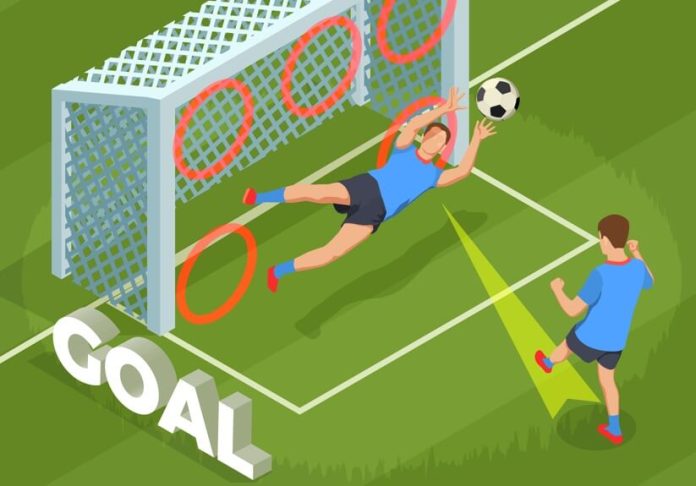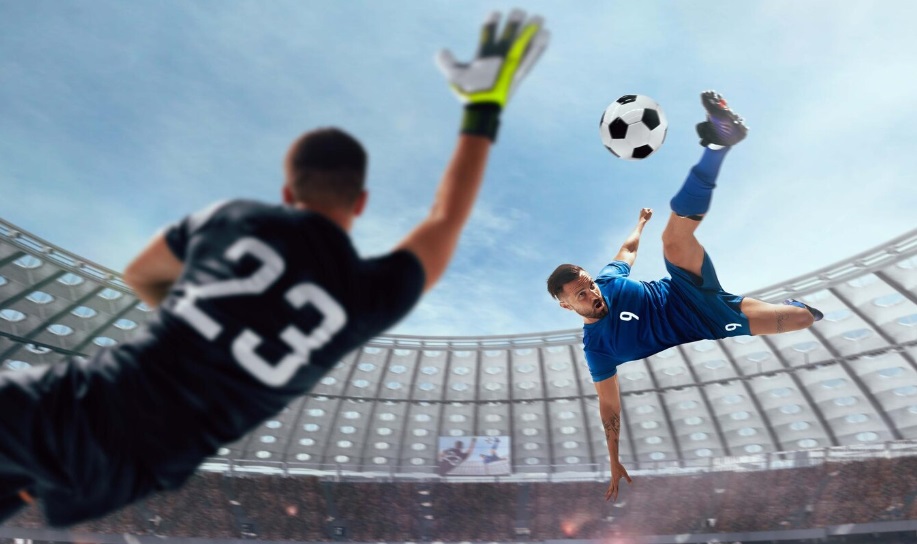
Penalties are by far the most exciting moments in football, where a single kick can change the whole game. For players, it is a combination of skills, mind games, and tremendous pressure. For fans and those engaged in football betting, it’s a moment of high stakes and anticipation. Understanding penalty kicks can give bettors an upper hand over others as well as offer deeper insights into the sport itself.
Significance of Penalties in Football
In football matches, penalties often determine key points of such games, hence making them very important. It is at this point where all eyes are fixed since one move could either transform or maintain the status quo within seconds. The outcome may serve to lift team spirit or cause a heartbreaking defeat, thereby indicating its significance in sports generally.
Apart from being an immediate game changer, penalties have long-term effects on teams’ seasons. A successful spot-kick during a crucial tie can propel any side towards championship heights, while failure stays with individuals forevermore. This twin opportunity, coupled with pressure, is what makes penalty shootouts integral parts of football tactics.
Psychological Force When Penalty Kicking
The force during a penalty kick is overwhelming; it affects players’ performances and decisions. Some of them are as follows:
- Expectations from fans and teammates: The responsibility to score may be too heavy for some players, leading to loss of concentration and self-confidence.
- Higher stakes: There is no other way of winning or losing than one single kick, which makes mental toughness essential.
- Goalkeeper tactics: It calls for quick-thinking ability combined with being flexible enough when one has to figure out what move the goalie might make next.
- Self-belief: This factor is very crucial because if you have doubts about yourself, then definitely you will hesitate, thus making errors in judgment that can cost your team dearly.
- Past experiences: A player’s confidence level regarding penalties greatly depends on how successful they have been before or how bad things went down in previous situations where such shots were awarded against them.
All these parts unite together, forming an extremely stressful environment where both mental strength and technical skill matter equally much. Knowing these kinds of pressure points will help us understand better what happens during penalty kicks as well as appreciate its significance in games.
Preparation and Training Methods
Meticulous preparation and focused training are necessary for mastering penalty kicks. This entails doing physical drills, undergoing psychological conditioning, and simulating game situations. By putting together these components, players can improve accuracy, poise, as well as overall performance in such high-pressure moments.
Psychological Tactics for Improving Concentration
Remaining calm and concentrated when taking a penalty kick is very important. One successful way is through visualisation, whereby participants mentally rehearse the penalty kick, seeing themselves succeed so as to gain confidence. This method makes things seem known and lowers anxiety levels.
Another important strategy involves setting routines. Players can create feelings of control and predictability that help relieve stress by having a constant pre-kick routine. It may also be useful to include stress management skills like deep breathing exercises, which will enable players to stay composed while maintaining focus, hence delivering precise kicks.
Revolutionary Approaches to Teaching Penalty Kicks
Advanced methods of teaching penalty kicks have been developed in recent years. One such method involves creating simulated pressure situations. Players are able to get used to the kind of intense pressure that comes with real match conditions by making it a part of their training, thus improving their ability to perform under stress.
Biofeedback tools are also starting to gain popularity. These devices measure physical responses like heart rate and muscle tension and give players feedback immediately. When they know how their body reacts when stressed, players can figure out ways to stay calm and focused, which will eventually make them more confident in taking penalties.
Success in Penalty Kicks: Case Examples
The investigation of those who have succeeded in penalties can provide some useful information about their idiosyncratic preparations and mental strategies. What distinguishes these figures from others is that they consistently show outstanding skills when it comes to coping with pressure in football. Some of the most prominent ones are as follows:
- Cristiano Ronaldo: Ronaldo has an elaborate warm-up routine which involves visualisation techniques and controlled breathing exercises aimed at helping him concentrate better and gain more confidence before each shot.
- Lionel Messi: Messi counts on his natural talent for observing the movements of goalkeepers coupled with a laid-back attitude designed to reduce anxiety levels while taking penalty kicks.
- Harry Kane: Kane’s achievement can be attributed to intense training sessions during which he creates game-like situations so as to toughen his mind and improve accuracy under such conditions later on.
- Andrés Iniesta: Iniesta’s coolness under pressure and ability to think strategically during spot-kicks owe much to his vast experience gained through regular participation in these events over many years.
What all this means is that if you want to become great at converting penalties, you should prepare yourself mentally and be strong-willed like these players.

Future Trends in Training for Penalty Kicks
Emerging technologies and advanced psychological insights are expected to revolutionise the future of penalty kick training. Some of these innovations include virtual reality (VR) programmes that allow players to practise in high-pressure situations with incredible accuracy. This kind of immersive training helps them build muscle memory so they can perform better during real games and reduces their anxiety.
Another major development is the use of data analytics in optimising player performance. Coaches can now customise their training programmes based on individual strengths and weaknesses by analysing metrics that show patterns over time. They also monitor physiological indicators through wearable devices during practice sessions which provide immediate feedback on technique and composure improvements.
Final Words
Taking penalties successfully requires psychological strength as well as consistent, deliberate practice. Aspirant football stars should therefore learn from successful individuals while incorporating new ways of training into their routines which will help improve this skill set. Such a holistic approach guarantees calmness under pressure leading up to significant moments when one’s best is regularly delivered.
Disclaimer: This article contains sponsored marketing content. It is intended for promotional purposes and should not be considered as an endorsement or recommendation by our website. Readers are encouraged to conduct their own research and exercise their own judgment before making any decisions based on the information provided in this article.

































